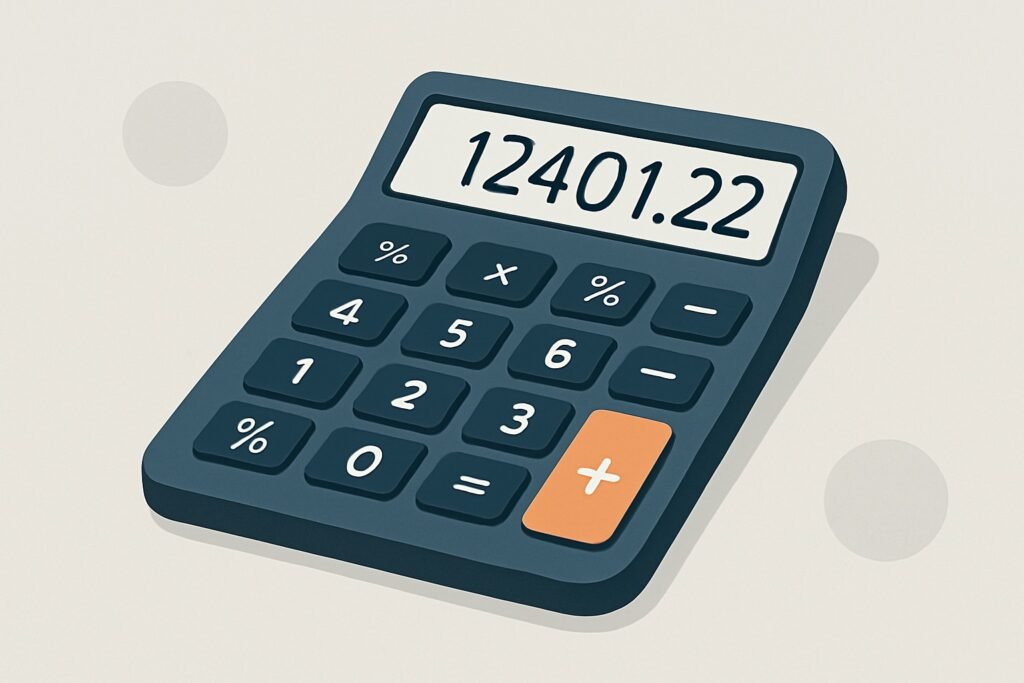
Use our Excel-based calculator to estimate how much tax you will pay as a sole trader in the 2025/26 tax year.
If you’re self-employed, you must work out your taxable profits each year – your business turnover minus allowable expenses – and report them via the Self Assessment process.
You pay both income tax and National Insurance Contributions (NICs) on your annual profits.
Enter your revenue and expenses in the input fields below to calculate your tax liability instantly.
2025/26 sole trader tax calculator
How sole traders are taxed
When you work for yourself, your profits (after expenses) are taxed in two ways – through income tax and National Insurance Contributions.
Income tax rates in 2025/26
- Personal allowance: £12,570 (no income tax due up to this level)
- Basic rate: 20% on income between £12,570 and £50,270
- Higher rate: 40% on income between £50,270 and £125,140
- Additional rate: 45% on income over £125,140
Note: Your personal allowance reduces by £1 for every £2 you earn over £100,000, disappearing completely at £125,140.
National Insurance rates in 2025/26
From April 2024, Class 2 NICs are no longer mandatory. For 2025/26:
- If your profits are under the Small Profits Threshold (£6,845), you can make voluntary Class 2 contributions (£3.50 per week) to protect your State Pension record.
- If your profits are above £6,845, you automatically receive a National Insurance credit for pension purposes without paying Class 2.
Class 4 NICs are paid at 6% on profits between £12,570 and £50,270, and 2% on profits above £50,270.
Worked examples
Example 1 – turnover £40,000, expenses £10,000
- Turnover: £40,000
- Allowable business expenses: £10,000
- Taxable profits: £30,000
- Personal allowance: £12,570 (no tax on this portion)
- Taxable at 20%: £17,430 → £3,486 income tax
- Class 4 NICs: 6% on £17,430 = £1,045.80
- Total tax/NIC bill: £4,531.80
- Take-home pay: £30,000 − £4,531.80 = £25,468.20
Example 2 – turnover £75,000, expenses £15,000
- Turnover: £75,000
- Allowable business expenses: £15,000
- Taxable profits: £60,000
- Personal allowance: £12,570
- Taxable at 20%: £37,700 → £7,540 income tax
- Taxable at 40%: £9,730 → £3,892 income tax
- Total income tax: £11,432
- Class 4 NICs: 6% on £37,700 = £2,262 + 2% on £9,730 = £194.60 → £2,456.60
- Total tax/NIC bill: £13,888.60
- Take-home pay: £60,000 − £13,888.60 = £46,111.40
Further resources
- Full guide to sole trader tax
- Guide to National Insurance for the self-employed
- Limited company tax calculator
- Official NIC rates on GOV.UK
A note on pension contributions
Your own pension contributions are not an allowable business expense for tax purposes. However, you can claim tax relief on them through your Self Assessment tax return.
The relief is given at the rate of income tax you pay, so a higher-rate taxpayer gets more tax relief than a basic-rate taxpayer.
Contributing to a pension can reduce your taxable income and, in some cases, bring you back into a lower tax band. Find out more in our guide to sole trader pension contributions.

Free business bank account + £50 cashback via ByteStart


